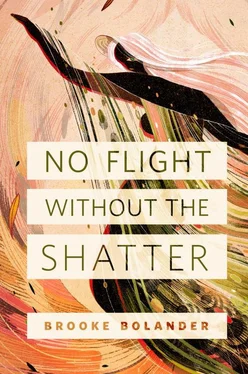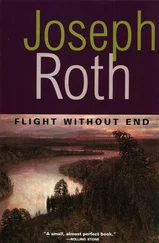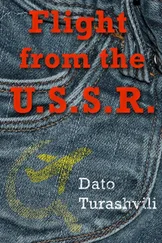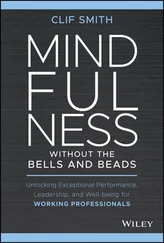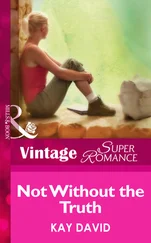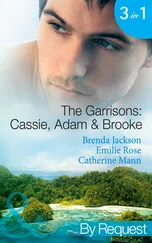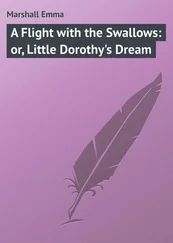Brooke Bolander
NO FLIGHT WITHOUT THE SHATTER
Pretend you are the land. Pretend you are a place far away, the last vibrant V of green and gold and tessellated rock before the sea and sky slither south unchecked for three thousand lonesome turns of a tern’s wing. Once upon a time the waters rose to cut you off from your mother continent, better independence through drowning. Some day soon, when the ice across the ocean turns to hungry waves, all the rest will follow, sliding beneath an oil-slick surface as warm and empty as a mortician’s handshake.
But that does not concern us—yet. You are the land, and today you are here to bear witness to a story four million years in the telling as she closes her eyes for the final time, striped haunches slowing their rise and fall as entropy hoists another tattered victory flag.
Thylacinus: from the Greek thýlakos, meaning “pouch” or “sack.” You have made her into your own image, a unique beast neither wolf nor tiger but its own striped singularity. No one at the zoo is qualified to sex such a creature. They dub her Benjamin, short omnivorous ape jaws unequipped to pronounce her true name even if anyone ever thought to ask.
The cage is very hot. There is no shade. When night falls there will be no shelter against the unseasonable cold. She paces and pants, her shadow writing the future across concrete in angular calligraphy. Beyond and through the chicken wire bland faces peer, unable to make any sense of the warning in her trot, the glassiness in her staring eyes.
But you are the land, and you read the message loud and clear: a missive from the place between being and not; a signal from the space between the final breath and whatever comes after.
* * *
Auntie Ben pats makeup over her stripes every morning. The last neighbors moved on years before, the only folks left to see are Martha and Doris and Linnea, but Auntie Ben, she has her habits. In the end, the only sense you have to make, she tells Linnea, is to yourself. And so: delicate little dabs along the lean, dusky line of her jaw, up the cheekbones sharp as taxidermy knives, all the way to her forehead, where hair the color of dirty sand dangles listless, fabric on barbed wire. Nobody knows where she found the powder. Nobody asks. Maybe it was waiting when the three arrived, like the vanity and the three beds and the yellow farmhouse itself.
“Every mammal’s got stripes,” she says. “Even you. Fella named Blaschko found ’em. Somewhere back along the line, your people took ’em off as easily as I shuck my own skin, buried them in a cigar box out back. If you could find that box again, you’d find your stripes, sure as fleas and fresh blood.”
Linnea asks Doris if this is true. Doris is stout and cheerful and most likely of the three aunties to give a true answer. She cooks, she straightens, she drives the pickup to what passes for a town these days to pick up supplies. She does not work on the ship. She lacks the imagination, she says; she was never that great at flying to begin with. The little cedar chest at the foot of her bed more often than not stays closed.
“There’s no telling with Benny,” she says, scratching at her round, flat beak of a nose. “She’s always been a reader, that one. You don’t look like you got stripes to me, though. Humans come in all shapes and sizes—most of ’em hairy or hungry, terribly hungry, how can such skinny things gobble up so many?—but I never do believe I’ve seen a striped one. Then again, not a lot of them around to study anymore ’cept you, little chick.”
She doesn’t bother climbing to the roof gables to ask Auntie Martha, staring sadly up at an empty fading sky as bronze-and-violet as her hair. Instead, Linnea wanders back inside and stands alone in front of the vanity mirror, searching for invisible stripes. The light through the bedroom curtains is a washed-out yellow, like paper or preserved hide or the end of a long, hot day.
* * *
They never say how they got together, Linnea’s three aunties, or where they hailed from before finding her and feeding her and fetching her home, lucky orphan among grubby roadside hundreds. She doesn’t remember faces before theirs. There was a gas station with busted windows. There was a little scratched spot in the dirt beneath the old pumps where she slept at night. There was potato crisp grease, tangled hair, and the occasional sandstorm. Beyond that, Linnea’s memory is a skull picked clean; shake it and hear leaves rattle inside.
That’s okay. Now is good. Back Then was probably not-so-good. And as to what lies ahead… No. Linnea keeps that lonesomeness locked down tight as any auntie’s chest. Now is good; the rest doesn’t matter.
Endlings make for strange bedfellows, Auntie Ben often says, pounding away at sheets of rusted tin atop the rickety rope ladder. She keeps a red bandana faded to the color of bared gums tied around her forehead. Her overalls are so stitched and crookety-patched (Doris does her best, but her fingers are too thick and strong and her eyesight too bad not to mangle such tiny work) they look like a quilt tossed over her long, lean self. She keeps all her tools in a denim pouch against her belly, saws and nails and a gone ghost forest worth of toothpicks forever tumble-scattering to the dusty ground far below. Auntie Ben has a lot of teeth to keep clean. When there were fresh bones to gnaw, she says, wistful, there was no need for toothpicks.
“Wombat feet,” she says. “Those always did the best job. Itty-bitty little bones, but sturdy.” A sigh, a shake of the head. Back to soldering a seam, goggles pulled safely down, impossible jaw firmly set.
Auntie Martha mostly draws star charts, sitting atop the farmhouse with paper and pen. Sometimes she sings. Her voice is croaky and harsh and the words make no sense to Linnea: endless repetitions of the same sound tunelessly unreeled, keeho keeho keeho kee! Sometimes she cocks her head afterward, almost like she’s waiting for a response. Nothing ever halloas back. Just the windmill creaking, the screen door slamming, the bang-bang-bang-bang of Auntie Ben’s hammer smashing dusk’s purple hush to pieces like a carelessly laid egg.
* * *
Pretend you are the sky. Pretend you are a sky the faint peach and dusty slate of a dove’s wing, folded protectively over darkening fields of corn and cities where yellow lights wink on like punctilious fireflies. Some day soon you will wither and broil. Those newly-hatched smokestacks on the horizon will slide beneath feather and skin and subclavius muscle with a hypodermic’s lethal care, a payload of jaundice injected with a belch and a billow, and the resulting buildup of toxins will ensure nothing bigger than a botfly ever darkens your horizon again. Your decay will smother the world, a dead bird huddling over an empty nest.
Soon, but not today. Today you are full of life—screech owl and nightjar, cranefly and bat. They know the spaces between stars. Even the ones locked fast in cage and crate can feel the wheel turning, seasons brushing shoulders on the subway. Away I must be going, they say to the bars and the locks, the cold iron that batters the breath from their hollow bones. I’ve had a lovely life here, but spring waits for no one, and I really must insist—
Even when all the rest are gone, millions blasted from your breast and returned as smoke, she feels the pull and calls to you. Every autumn for twenty-nine years, right up until the day of her stroke. The zookeepers hang the name of a dead president’s wife around her foot like a wartime message, hoping for domesticity, but she is still Ectopistes migratorius, traveler in name and nature.
Читать дальше
